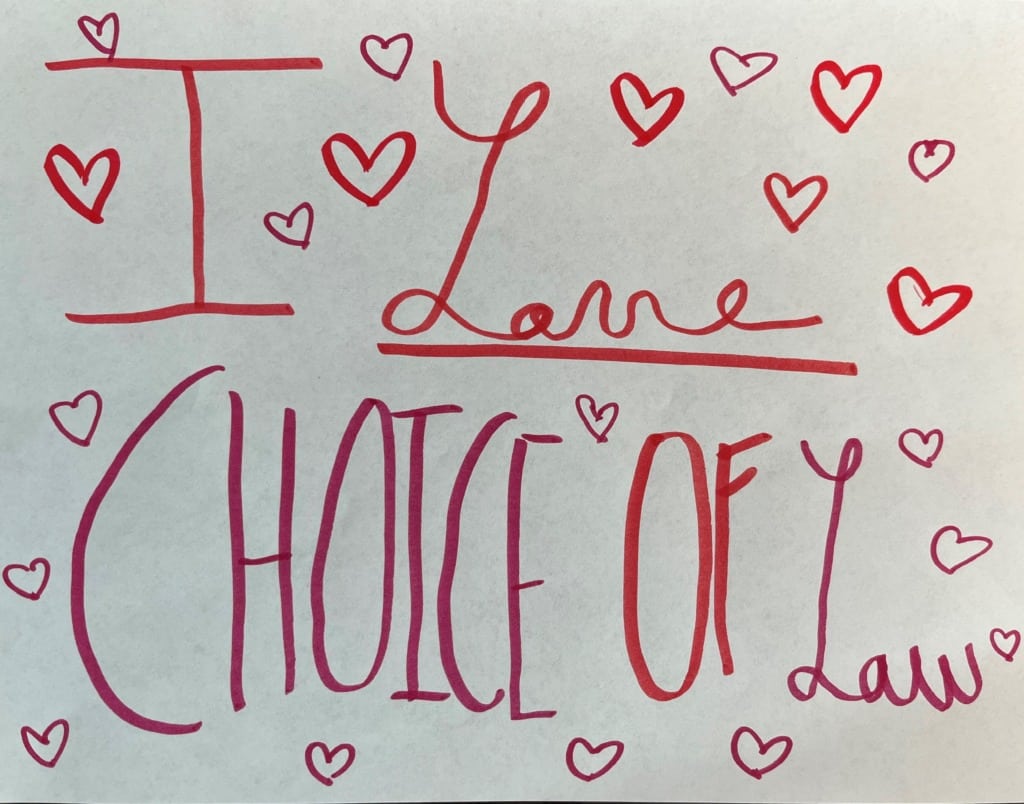Zooming Out of Forum Non Conveniens
A recently published note in the Columbia Law Review, written by Christabel Narh, draws a connection between the federal courts’ technological learning curve during the pandemic and the future of forum non conveniens. Zooming Our Way Out of the Forum Non Conveniens Doctrine argues that the federal courts’ trial-by-fire with videoconferencing and remote litigation during…
Continue ReadingSupreme Court Requests Response to FNC Cert Petition
The Supreme Court has called for a response in Wamai v. Industrial Bank of Korea, a terrorism-related lawsuit that was dismissed for forum non conveniens. The plaintiffs have asked the Court to consider how much deference federal courts should give U.S. plaintiffs’ choice of forum when they are joined by foreign co-plaintiffs. The Southern District…
Continue ReadingFederal Court in Nevada Allows Ethiopia Bribery Claims to Move Forward
In a fascinating decision, the District Court for the District of Nevada (Judge Richard Boulware) recently allowed civil RICO claims to proceed against a Nevada resident based on bribery in Ethiopia, while dismissing claims against Ethiopian government entities under the Foreign Sovereign Immunities Act (FSIA). Fremichael Ghebreyesus v. Federal Democratic Republic of Ethiopia not only…
Continue ReadingDistrict Court Rejects Forum Non Conveniens Motion in Haiti Price-Fixing Case
The plaintiffs in Celestin v. Martelly brought a class action alleging that Haitian President Michel Joseph Martelly hatched a scheme to impose fees and fix prices on money transfers, food remittances, and international calls to and from Haiti and that Haitian and U.S. companies joined the scheme in violation of U.S. antitrust law, the federal…
Continue ReadingCert Petition Defends Partial Forum Non Conveniens Dismissals
A pending cert petition before the U.S. Supreme Court asks whether a district court may dismiss part of an action pursuant to the doctrine of forum non conveniens (“FNC”) while allowing the rest of the case to proceed. The Tenth Circuit held that it could not in DIRTT Environmental Solutions Inc. v. Falkbuilt Ltd. because…
Continue ReadingAn Exemplary Decision
It is important to have high standards… especially when it comes to forum selection clauses, personal jurisdiction, and forum non conveniens. Since its inception, this blog has discussed a number of judicial decisions where these high standards were not fully met. One can find posts offering criticism here and here and here and here and…
Continue ReadingChoice of Law in the American Courts in 2022
The thirty-sixth annual survey on choice of law in the American courts is now available on SSRN. The survey covers significant cases decided in 2022 on choice of law, party autonomy, extraterritoriality, international human rights, foreign sovereign immunity, foreign official immunity, the act of state doctrine, adjudicative jurisdiction, and the recognition and enforcement of foreign…
Continue ReadingAdmiralty’s Influence on Transnational Procedure
Admiralty was the original site of transnational litigation in U.S. courts. Given the breadth of admiralty jurisdiction, the federal courts developed a number of procedural tools for balancing international comity and practical concerns in these international business disputes. Just because a foreign ship showed up in a U.S. port, for instance, didn’t mean a U.S….
Continue ReadingSupreme Court Denies Cert in More Transnational Litigation Cases
On Monday, I reported that the Supreme Court denied cert in NSO Group Technologies Ltd. v. WhatsApp Inc., letting stand a Ninth Circuit decision that companies that work for foreign governments cannot claim immunity from suit under federal common law. Monday’s orders list also denied cert in two other cases that TLB has been following. First,…
Continue Reading“Catching and Killing” Suits Against Boeing
A recent decision by the Northern District of Illinois (Judge Franklin Valderrama) exemplifies the phenomenon that TLB advisor Zach Clopton has termed catch and kill jurisdiction: when federal courts stretch to take cases from state courts only to dismiss them on procedural grounds that the state courts would not have applied. In Wragge v. Boeing,…
Continue Reading- « Previous
- 1
- 2
- 3
- 4
- Next »








